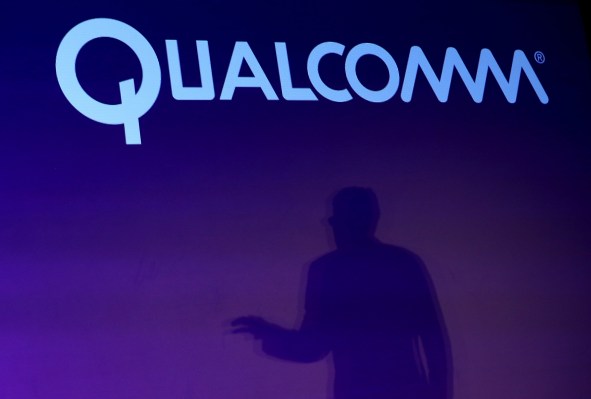President Trump has blocked Broadcom’s proposed $117 billion buyout of Qualcomm over security concerns, according to a White House statement. News of the president’s decision was first reported by CNBC.
The move could send shockwaves rippling through the broader global economy, as the president continues his push to “put America first” in trade negotiations with global partners.
Broadcom’s acquisition offer, which was a risky prospect heading into today’s decision from the White House, isn’t the first time that the president has blocked a deal. But the proposed deal between the two chipmakers had broad implications for the entire technology industry and the ramifications of the president’s decision will be enormous.
The combination of the two chipmakers would have potentially been the biggest tech merger of all time, and would have brought together two of the biggest companies that manufacture the processors that power phones, computers and almost the entire array of connected devices.
It’s a saga that had played out for months amid resistance from Qualcomm — and more recently the US government, whose Committee on Foreign Investment in the United States (CFIUS) last week said it would be investigating the deal on the grounds of national security.
In an unprecedented move, Qualcomm actually approached CFIUS to quash the Broadcom bid — as TechCrunch reported over the weekend.
“Originally… analysts thought that CFIUS was responding to pressure from Congress to act unilaterally on the proposed deal. What we have learned though is that Qualcomm’s board had secretly asked CFIUS to review the transaction on January 29th this year.
In other words, Qualcomm is using America’s regulatory authority as a potential weapon to thwart Broadcom’s bid and protect itself. It’s a brilliant maneuver, and also fairly unprecedented: CFIUS is usually only engaged once both parties to a transaction have finalized a deal and submitted it for review.”
Despite the decision by President Trump to act as a white knight from the White House and save Qualcomm from Broadcom’s clutches, the company still faces some daunting challenges.
It’s still facing a looming lawsuit from Apple over allegedly unfair business practices and it has yet to fully digest its acquisition of NXP.
It was amid these woes that the company was forced to restructure its board. Last week the company said that Dr. Paul E. Jacobs will no longer serve as executive chairman for the company’s board of directors.
While he will remain a director, the move was a sign from Qualcomm’s board that it recognized all was not well at the venerable chipmaker.
The NXP acquisition was actually central to Qualcomm’s argument that it is undervalued. At one point the company wrote an open letter to Broadcom, stating that “your proposal ascribes no value to our accretive NXP acquisition, no value for the expected resolution of our current licensing disputes and no value for the significant opportunity in 5G. Your proposal is inferior relative to our prospects as an independent company and is significantly below both trading and transaction multiples in our sector.”
In other words, it doesn’t think Broadcom is appreciating the value gathered from Qualcomm’s recent acquisition of NXP Semiconductor. It also believes that Broadcom is underestimating Qualcomm’s potential 5G wireless technology.
The 5G factor was critical to the president’s decision to block the bid.
A letter from the Treasury Department, released last week, actually laid out the case for the president’s rejection. In it, CFIUS said that Broadcom’s history of slashing research spending and its ability to compromise Qulacomm’s assets through relationships with foreign governments was concerning.
There’s a race on for global influence over the newest 5G connectivity technology — which holds out the promise of super fast connectivity to enable the autonomous, automated future of driving and manufacturing that tech executives salivate over. It’s one reason why Google and Microsoft were vocal in their opposition to the Broadcom acquisition.
